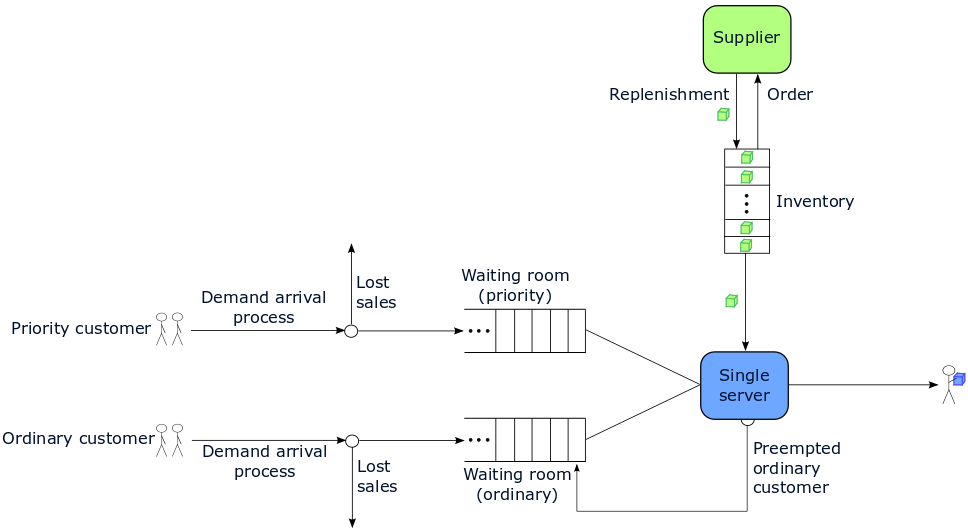Queueing-inventory systems with priority classes
Working Groups: Lehrstuhl Angewandte Analysis
Collaborators (MAT): Dr. Sonja Otten
Collaborators (External): Prof. Dr. Hans Daduna
Description
Adequate and differentiated service of customers becomes more and more important and product availability is an important aspect of service. There are many situations where it would be financially beneficial to provide different service levels to different customer classes: Companies often need to provide different service levels to different customers based on their contracts. This means that orders with long term contracts have higher priority than unscheduled orders since they may bear lower shortage cost than the booked orders. Another example is the case where different customers pay different prices for the same product. Then the company has an incentive to meet more of the demand of the customer who pays a higher price than a customer who pays a lower price. However, up to now, one of the key assumptions of queueing-inventory models in literature is that customers are indistinguishable. We study a production-inventory system with two customer classes with different priorities which are admitted to the system following a flexible admission control scheme. The inventory management is according to a base stock policy and arriving demand which finds the inventory depleted is lost (lost sales). We analyse the global balance equations of the associated Markov process and derive structural properties of the steady state distribution which provide insights into the equilibrium behaviour of the system.

References
[1] S. Otten. Integrated Models for Performance Analysis and Optimization of Queueing-Inventory-Systems in Logistic Networks. Phd thesis, Universität Hamburg, 2018. Available at ediss.sub.hamburg.
[2] S. Otten, H. Daduna. Stability of queueing-inventory systems with customers of different priorities. Ann Oper Res, 2022. doi: 10.1007/s10479-022-05140-1.


